230 Teachers Arrested In Iran In Past Two Months
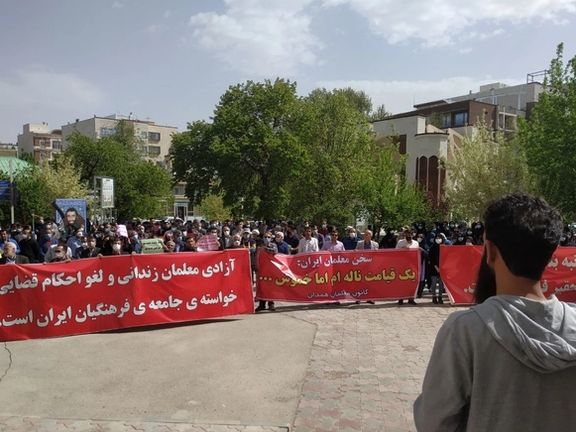
More than 230 teachers and teachers' union activists have been “abducted” and detained in various cities across Iran during the past two months, their union says.

More than 230 teachers and teachers' union activists have been “abducted” and detained in various cities across Iran during the past two months, their union says.
The Coordination Council of Iranian Teachers' Trade Associations said Sunday that there is no information available about the situation of several of the imprisoned teachers.
It added that three of the arrested activists, Rasoul Bodaghi, Mohammad Habibi and Jafar Ebrahimi, are being held in solitary confinement in ward 240 of Evin Prison, which is controlled by the Intelligence Ministry "without the right to contact or visit by their families" since two weeks ago.
Earlier in the month, teachers held another round of nationwide protest against their low salaries and systematic discrimination, while anti-government protests and strikes by merchants and pensioners continued in Iran.
Teachers have been holding frequent protests for nearly a year, but the political situation in Iran has worsened in recent months, with rising food prices and a growing perception of government inefficiency and corruption.
Four years of deep economic crisis in Iran following the introduction of United States ‘maximum pressure’ sanctions in 2018 has led to a sharp increase in living costs and labor unrest.
People from different walks of life, including nurses, firefighters, and even judiciary department employees and prison guards, have held protest rallies or strikes to demand higher salaries.
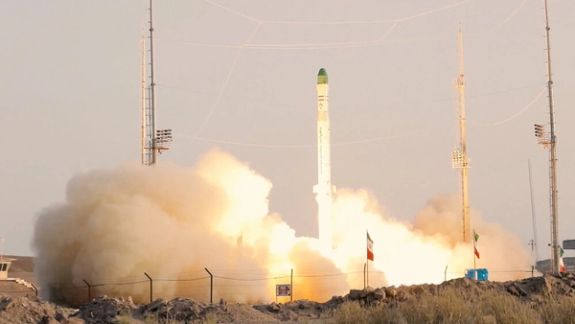
Iran’s Defense Ministry says it has “successfully” tested its hybrid-propellant satellite carrier rocket called Zoljanah for the second time.
Defense Ministry spokesman Ahmad Hosseini said on Sunday that the three-stage Zoljanah (Zuljanah) satellite launch vehicle has two solid propulsion phases and a single liquid propulsion phase. The spokesman did not elaborate which part of the test was successful as the satellite-carrying rocket did not reach orbit.
The test was carried out at a desert launch pad at Imam Khomeini Space Center southeast of Semnan, the site of frequent recent failed attempts.
Zoljanah is named after the horse of third Shiite imam Hussein, the grandson of Prophet Muhammad. The satellite carrier is 25.5 meters long and weighs about 52 tons. It utilizes a 1.5-meter diameter solid fuel engine with 74 tons of thrust. The maiden launch of this satellite took place on February 2, 2021.
Earlier in the month satellite photos from Maxar Technologies revealed Iran’s preparations for the rocket launch.
A Pentagon spokesman said the American military “will continue to closely monitor Iran’s pursuit of viable space launch technology and how it may relate to advancements in its overall ballistic missile program.” The United States says that space launches by Iran could be a cover to develop intercontinental ballistic missiles that would be able to deliver nuclear warheads.
The attempted space launch came a day after Joseph Borrell, the EU lead foreign policy official, was in Tehran to restart the stalled Vienna negotiations aimed at salvaging the 2015 nuclear deal between Iran and world powers.
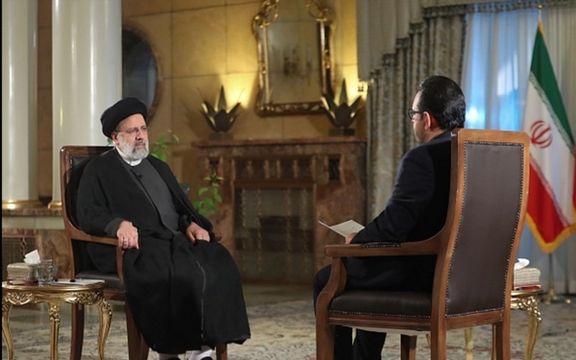
Iran's President Ebrahim Raisi, facing serious economic challenges, gave his 6th interview in 10 months to the state television Saturday evening, June 25.
During the interview, Raisi defended his government's problematic economic performance and blamed the previous government and "conspiracies hatched by the enemies," for the country's mounting problems.
According to the official news agency, IRNA, Raisi said that his government has repaid the previous government's 290 trillion rial (around $1.2 billion) debt to the banks within only 20 days after he took office. He added that very little fund in foreign currency was left at the treasury by the end of the previous government's term of office. He also claimed that the "economic reform" he is pursuing should have been implemented under the government of President Hassan Rouhani.
Meanwhile, he blamed foreign conspiracies and the previous government's performance for the financial crisis Iranians are facing today.
One news website commented that the interview was not really an interview. It was a one-sided campaign speech, and the interviewer acted like an employee, referring to the state televsion fully at the service of the government.
In an interview with Nameh News website, Iranian economic analyst Albert Boghosian said Raisi's remarks on the state TV were not convincing. Boghosian added that Raisi's promise about tackling Iran's rising inflation within a short period of time was unrealistic, and that the people were right not to believe him.
He said it was not clear if the President meant that prices would come down after a while, or as is more likely, he meant that there will be no further increases.
Raisi’s government abolished food import subsidies in early May that led to an immediate jump in prices. The point-to-point inflation rate for May-June jumped 55 percent to the same period in 2021. The government called its decision “economic surgery.”
Boghosian added that Iranians were not prepared for Raisi's 'economic surgery’ and likened the resident's move to building a house while ignoring that the operation will lead to the collapse of neighboring buildings. The economist said ironically that Raisi has performed the surgery but there is no one around to take care of the patient's recovery.
He warned that Iran is in a situation that even stabilizing the prices are not acceptable and there should be a reduction in inflation. "People cannot wait…hoping that prices will hopefully come down in six months," he said.
In another development, moderate-conservative news website Khabar Online asked its readers whether Raisi's remarks were convincing. Most of the comments sent to the website were negative. One reader said: "It was disappointing. He did not say anything new." Another reader wrote: "Raisi's comments about the banking system, inflation, prices, and housing did not make sense." Still, a third reader commented that "The honorable president did not accept responsibility for his cabinet's performance and blamed the previous government and sinister elements. Generally, he did not convince anyone."
Economic journalist Ebrahim Alizade wrote in series of tweets on Sunday: "Why did Raisi took part in this interview? Was he trying to calm the people? He kept promising that the situation is going to get better but did not talk about the parliament's plans to further increase prices."
In the meantime, reports from the Iranian parliament (Majles) say the process has been completed for the impeachment of Industry Minister Reza Fatemi Amin while motions have been also tabled to impeach the ministers of Agriculture, Interior, and Roads and Housing.
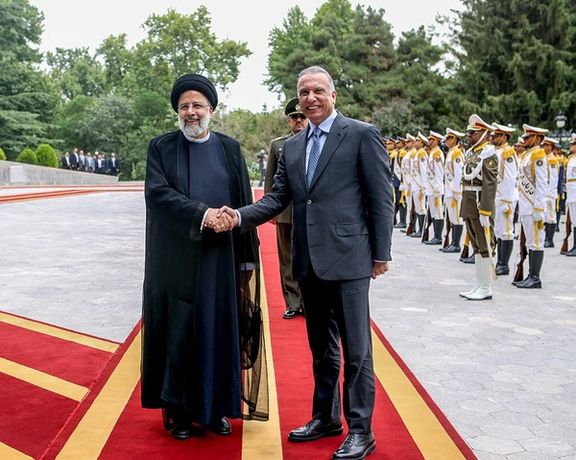
Iraqi Prime Minister Mustafa al-Kadhimi arrived in Iran Sunday after a visit to Saudi Arabia aimed at jumpstarting stalled talks between Tehran and Riyadh.
Al-Kadhimi, who headed to Saudi Arabia Saturday evening and met with the kingdom’s de facto ruler Crown Prince Mohammed bin Salman on Sunday, was officially welcomed by Iranian President Ebrahim Raisi.
While in Riyadh, Prince Mohammed and Kadhimi addressed "bilateral relations and opportunities for joint cooperation" as they discussed several issues that would contribute to supporting and strengthening regional security and stability," the official Saudi Press Agency reported,
Iran and Saudi Arabia -- which are locked in proxy conflicts around the region -- have held several rounds of talks in the Iraqi capital Baghdad since 2021.
In April, they finally held the much-anticipated fifth round of negotiations, saying that a clear outlook was reached for the resumption of regular talks. Kadhimi said then he believed "reconciliation is near."
Iran’s Foreign Ministry spokesman said late in March that improving Tehran-Riyadh relations would benefit all regional countries.
However, it was the Islamic Republic that earlier in the month suspended the talks a day after Saudi Arabia announced it had beheaded 81 men, including seven Yemenis and a Syrian, for “heinous crimes.” Forty-one were Saudi Shiites, Human Rights Watch reported, apparently convicted over protests.
Saudi Arabia cut ties with Iran in 2016 when mobs attacked its embassy in Tehran after Riyadh executed 47 dissidents including the leading Shiite cleric Sheikh Nimr al-Nimr.
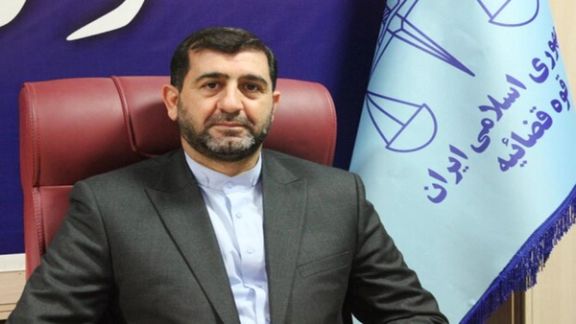
The prosecutor of Ahvaz announced the arrest of the former head of one of the governmental organizations of Khuzestan province as well as a number of managers of oil companies.
The prosecutor general of Khuzestan province, Sadegh Jafari-Chegeni, said on Saturday that indictments were issued in several embezzlement cases related to the road and urban development ministry and some steel companies among others.
He added more than 100 indictments have been issued against officials, companies, government or government-affiliated organizations and public institutions since last year.
Jafari-Chegeni also said 16 people have been arrested in connection with the deadly collapse of a high-rise building in May, and other people may face charges following the decisions by the expert taskforce that is investigating the case.
The Metropol twin towers collapsed on May 23 burying more than 80 people under the rubble, with 42 bodies recovered so far. It is not clear what happened to the other 40 people who went missing, as most of the debris has been removed.
The governor general of Khuzestan province, Sadegh Khalilian, admitted earlier in the month that "corruption" was the underlying reason for the collapse of the building that led to days of protests, adding that "the building was erected on the foundations of corruption and unhealthy relations.”
Last week, Iran’s Martyrs Foundation confirmed several cases of embezzlement in the institution, saying only in one of instances the amount was about $200 million.
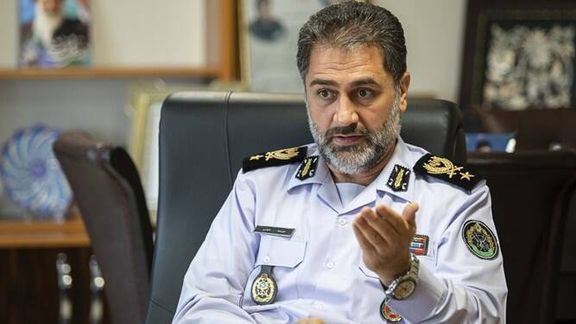
Iran’s Air Defense Force has announced plans to unveil missiles with a range of 300 kilometers to increase the country’s “deterrent power.”
Addressing a gathering of the officers of the Armed Forces, the Revolutionary Guard and the police on Sunday, Deputy Commander of the Army’s Air Defense Force, Brigadier General Alireza Elhami said "The only way out of all sanctions and threats is to become stronger in all matters, especially in the military field."
The development of missile power is a sign of self-confidence and reliance on domestic capabilities, he added, without disclosing any details about the new missiles.
He also called for synergy and coordination between the various branches of the Islamic Republic’s military, describing it as a force of progress for the country.
“The Army Air Defense is cooperating with the country's elites, the Ministry of Defense, and the Armed Forces in the fields of defense sciences, artificial intelligence, cognitive sciences, quantum physics, cyber defense, and electronic warfare,” Elhami said.
Late in May, Iran showcased several new models of cruise missiles and drones in an Army's secret underground base in the Zagros mountains.
Iran is accused of providing Yemen’s Houthis and numerous other proxies militias with missiles and drones that are used to attack Saudi Arabia and the United Arab Emirates as well as bases hosting US-led forces in Iraq and Syria.